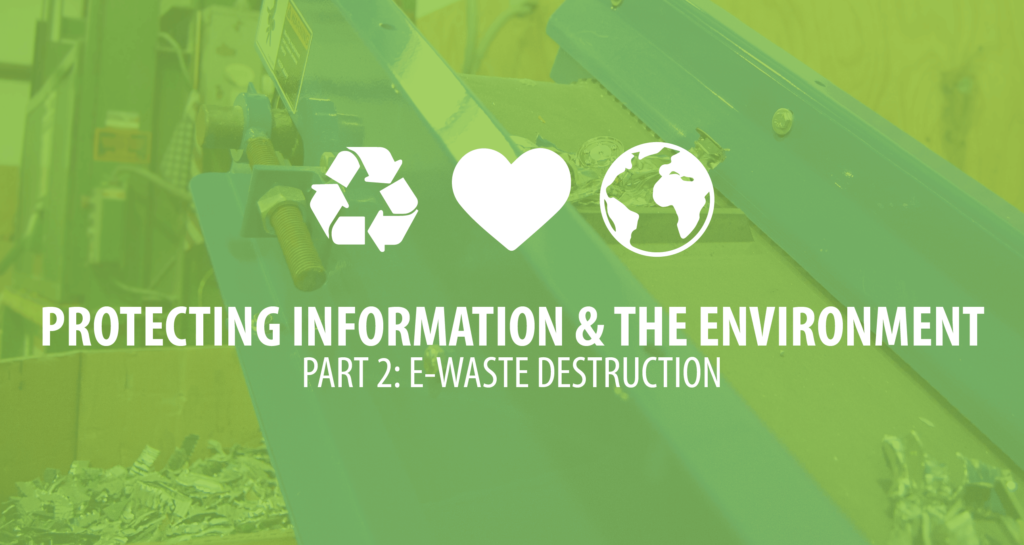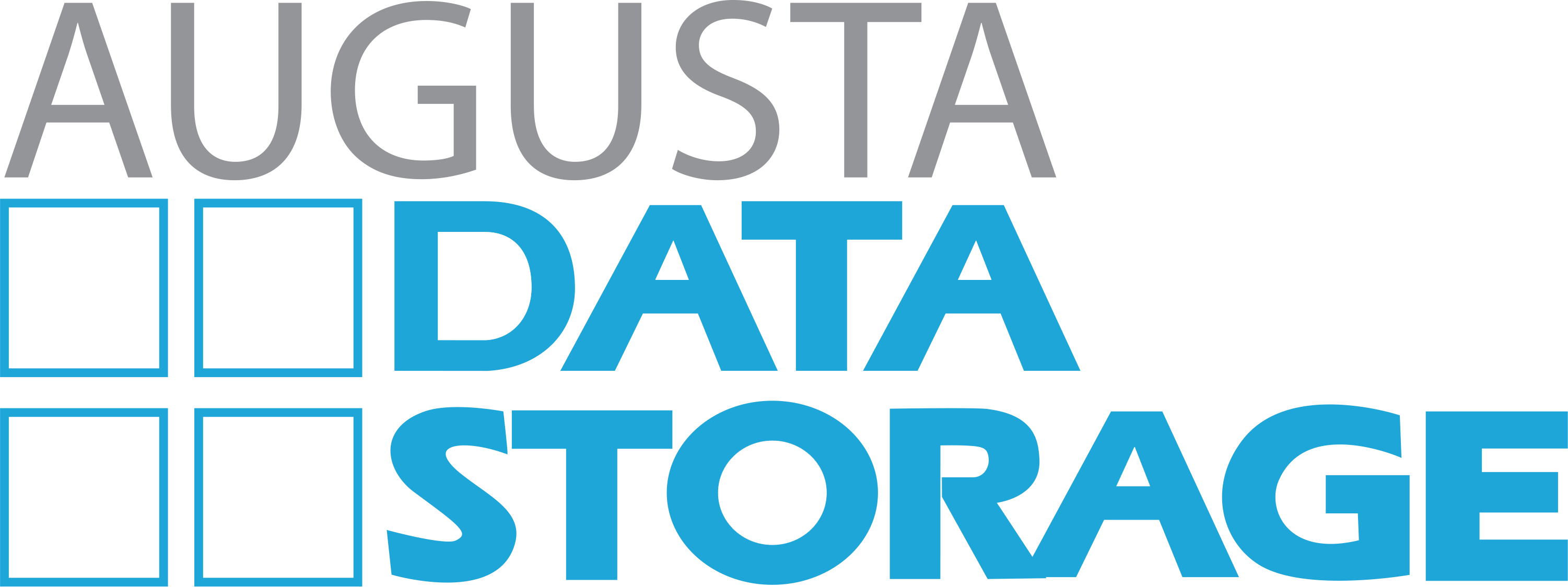Protecting Your Information and the Environment Part 2: E-waste Destrcution

In 2016 Augusta Data Storage was proud to add secure e-waste destruction to our list of NAID-AAA Certified destruction processes. As a part of these services we process a variety of “end-of-life” electronic devices that might otherwise end up in landfills, including hard drives, server drives memory boards, back-up tapes, mobile devices, computers and more.
As we mentioned in Part 1 of this series, many of you have asked questions like “what happens to all the paper you shred?” or “what are you doing promote green practices in your destruction business?” So today we’re sharing the steps we take to ensure that our processes and our vendors are working to protect not only your information, but also our environment.
E-WASTE DESTRUCTION PROCESSES
For many businesses and consumers, electronic waste is a growing problem. As a part of our e-waste recycling program, we securely destroy (using industry certified standards) any hard drives associated with your devices to ensure your electronic information doesn’t end up in the wrong hands.
The destroyed hard drives are processed to remove any precious metals, and hazardous materials and the remainder of the elements are then recycled. Actual hardware, such as computers and other components, are separated and stripped down to remove reusable items and repurpose as much of the products as possible to eliminate the burden in landfills and on the environment.
Our E-waste Destruction recycling partners are R2 Certified. R2 stands for Responsible Recycling, and this certification means that requires certified companies to have a policy on managing used and end-of-life electronics equipment, components and materials based on strategies such as reuse, materials and energy recovery and disposal (2). Benefits of R2 certification include(1)
- Promotes safe and effective recovery and reuse of electronic equipment and materials
- Guards downstream control of the recycling chain
- Minimizes environmental and public health risks
- Demonstrates compliance with domestic and international laws
- Minimizes liability and encourages reduced insurance costs for recyclers
- Assists original equipment manufacturers (OEM’s) with due diligence for their end-of-life electronics
- Instills public confidence through certified third-party review
Interested in learning more about the green aspects of our document destruction process? Checkout Part 1 of this series!
Sources:
Responsible Recycling – Why Consider R2? – Perry Johnson Registrars
R2 Certification Definition – Thomas Industries
